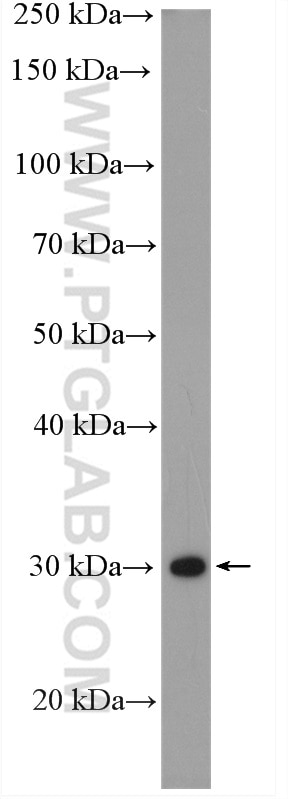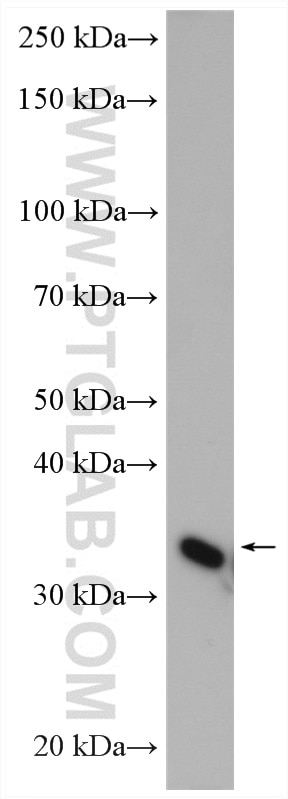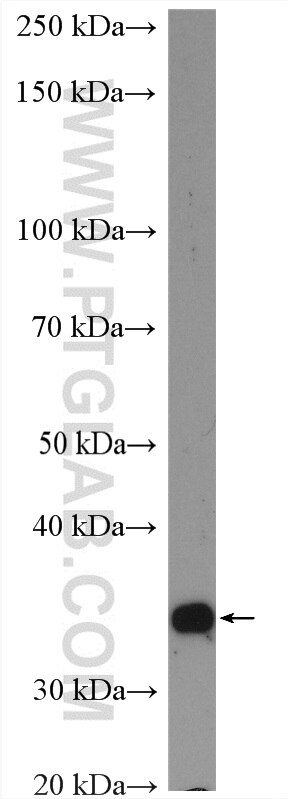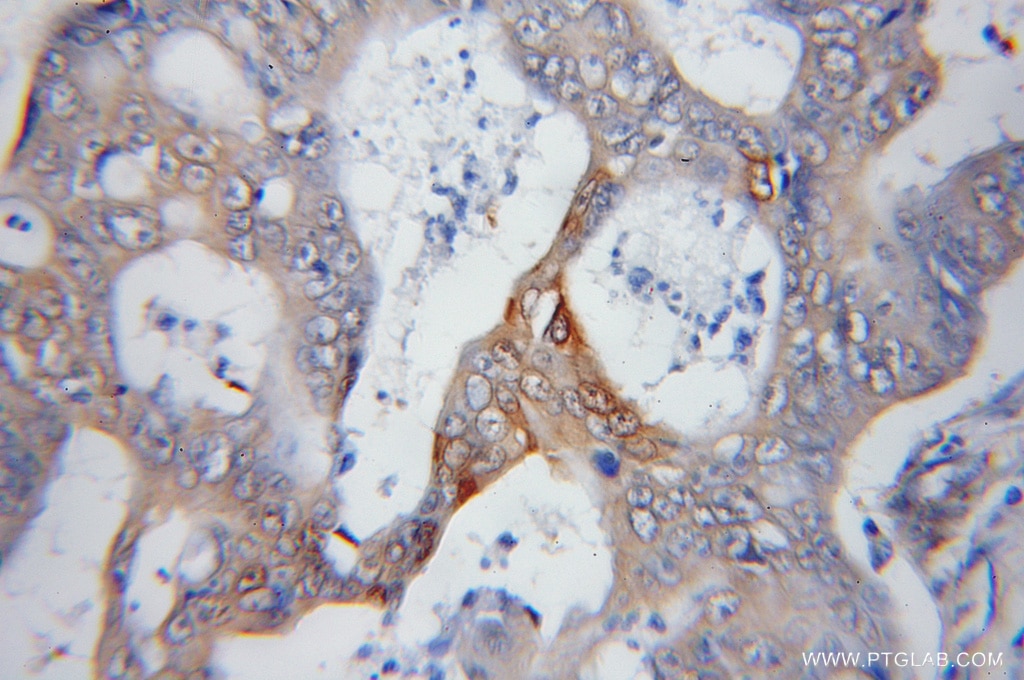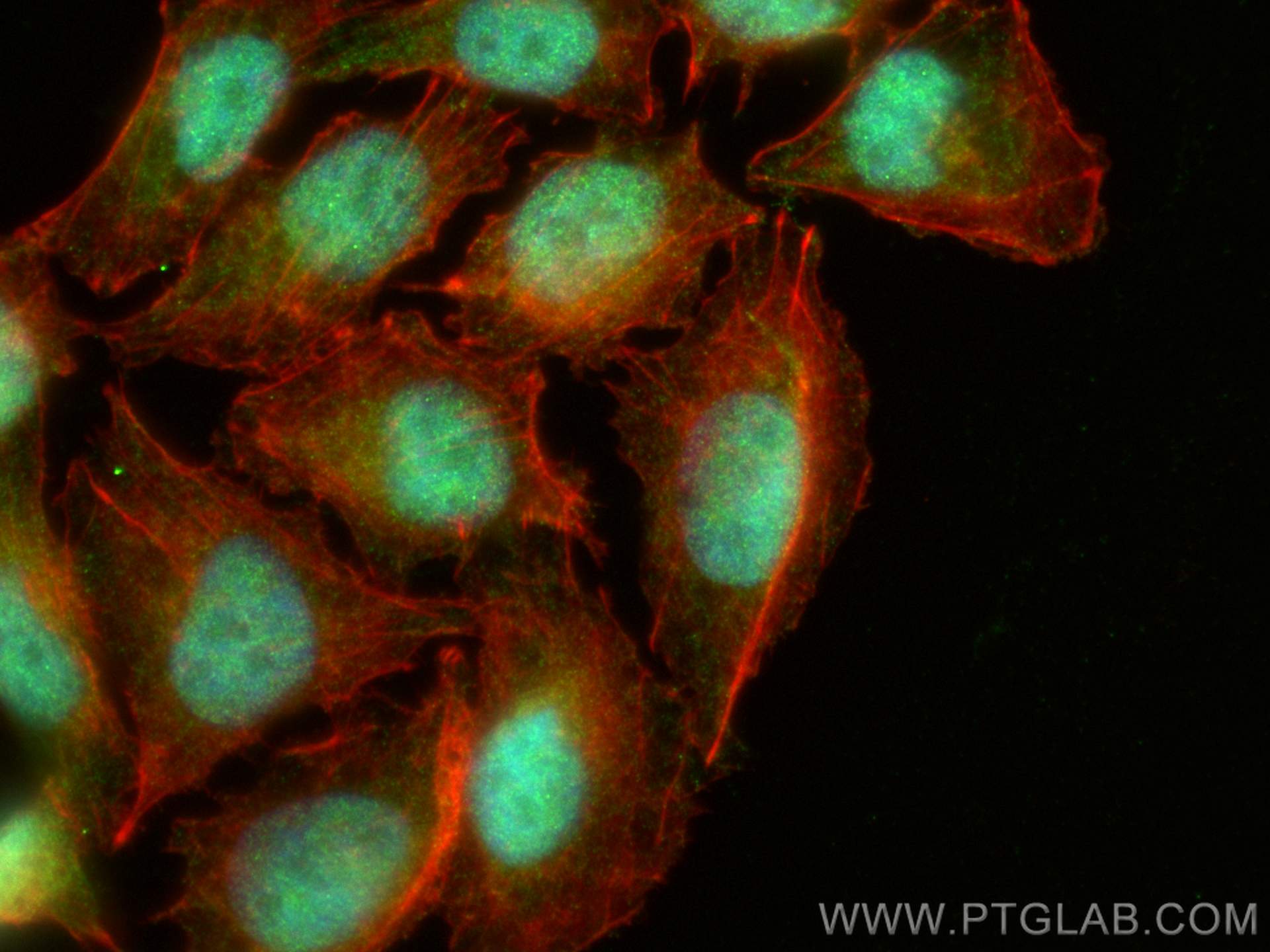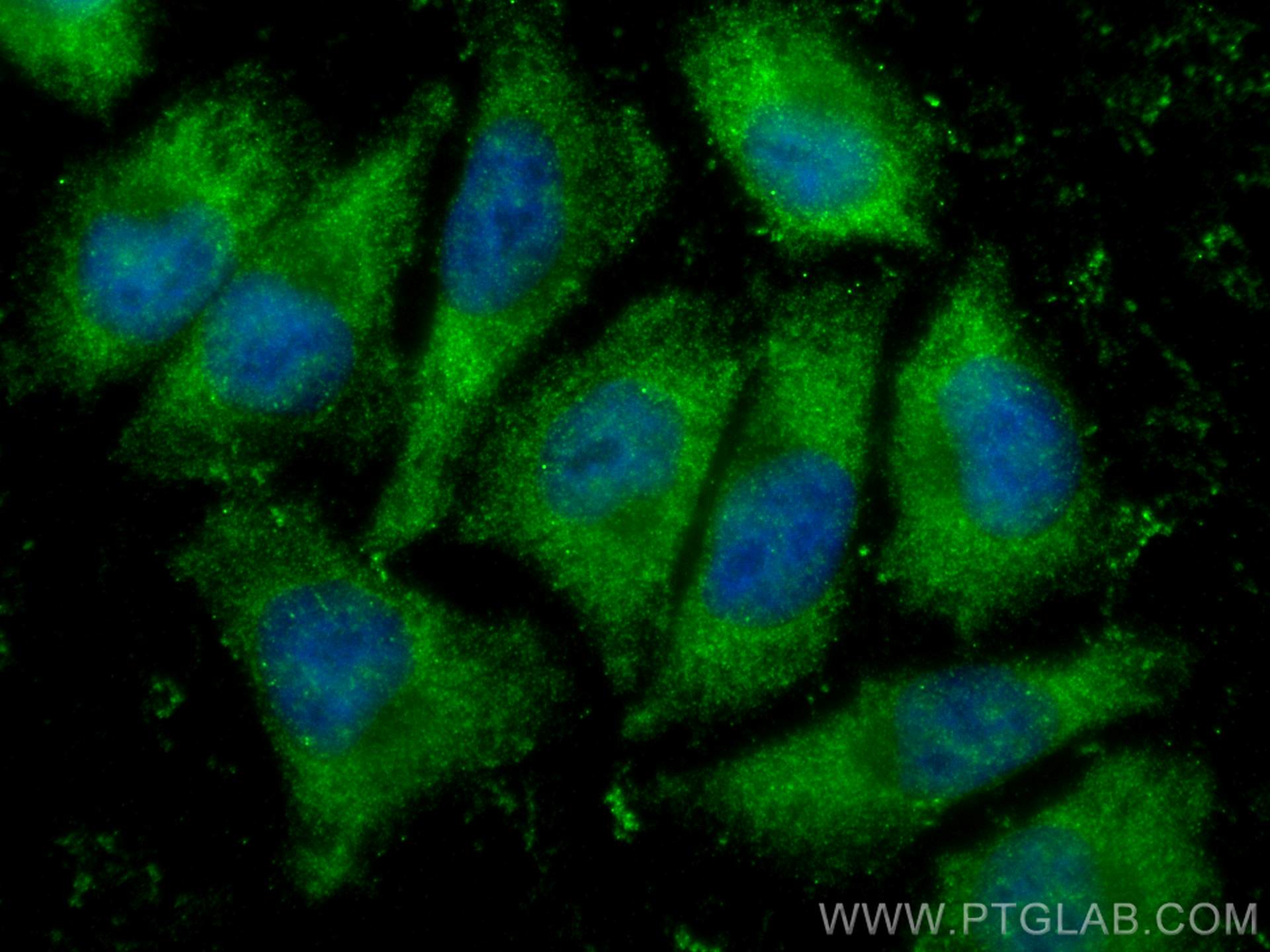Validation Data Gallery
Tested Applications
| Positive WB detected in | A431 cells, rat heart tissue, K-562 cells |
| Positive IHC detected in | human colon cancer tissue Note: suggested antigen retrieval with TE buffer pH 9.0; (*) Alternatively, antigen retrieval may be performed with citrate buffer pH 6.0 |
| Positive IF/ICC detected in | A375 cells |
Recommended dilution
| Application | Dilution |
|---|---|
| Western Blot (WB) | WB : 1:500-1:1000 |
| Immunohistochemistry (IHC) | IHC : 1:20-1:200 |
| Immunofluorescence (IF)/ICC | IF/ICC : 1:200-1:800 |
| It is recommended that this reagent should be titrated in each testing system to obtain optimal results. | |
| Sample-dependent, Check data in validation data gallery. | |
Published Applications
| KD/KO | See 6 publications below |
| WB | See 12 publications below |
| IHC | See 5 publications below |
| IF | See 3 publications below |
Product Information
12059-1-AP targets PSMD14/POH1 in WB, IHC, IF/ICC, ELISA applications and shows reactivity with human, mouse, rat samples.
| Tested Reactivity | human, mouse, rat |
| Cited Reactivity | human, mouse |
| Host / Isotype | Rabbit / IgG |
| Class | Polyclonal |
| Type | Antibody |
| Immunogen | PSMD14/POH1 fusion protein Ag2694 相同性解析による交差性が予測される生物種 |
| Full Name | proteasome (prosome, macropain) 26S subunit, non-ATPase, 14 |
| Calculated molecular weight | 35 kDa |
| Observed molecular weight | 35 kDa |
| GenBank accession number | BC009524 |
| Gene Symbol | PSMD14 |
| Gene ID (NCBI) | 10213 |
| RRID | AB_2170454 |
| Conjugate | Unconjugated |
| Form | Liquid |
| Purification Method | Antigen affinity purification |
| UNIPROT ID | O00487 |
| Storage Buffer | PBS with 0.02% sodium azide and 50% glycerol pH 7.3. |
| Storage Conditions | Store at -20°C. Stable for one year after shipment. Aliquoting is unnecessary for -20oC storage. |
Background Information
The PSMD14 (POH1, also known as Rpn11/MPR1/S13/CepP1) protein is a metalloprotease component of the 26S proteasome that specifically cleaves 'Lys-63'-linked polyubiquitin chains. The 26S proteasome is involved in the ATP-dependent degradation of ubiquitinated proteins. PSMD14 is highly expressed in the heart and skeletal muscle. In carcinoma cell lines. down-regulation of PSMD14 by siRNA transfection had a considerable impact on cell viability causing cell arrest in the G0-G1 phase, ultimately leading to senescence.
Protocols
| Product Specific Protocols | |
|---|---|
| WB protocol for PSMD14/POH1 antibody 12059-1-AP | Download protocol |
| IHC protocol for PSMD14/POH1 antibody 12059-1-AP | Download protocol |
| IF protocol for PSMD14/POH1 antibody 12059-1-AP | Download protocol |
| Standard Protocols | |
|---|---|
| Click here to view our Standard Protocols |
Publications
| Species | Application | Title |
|---|---|---|
Cell Metab Amelioration of nonalcoholic fatty liver disease by inhibiting the deubiquitylating enzyme RPN11 | ||
Sci Transl Med Neutrophil extracellular traps, B cells, and type I interferons contribute to immune dysregulation in hidradenitis suppurativa. | ||
Nat Commun POH1 deubiquitylates and stabilizes E2F1 to promote tumour formation.
| ||
Cancer Lett POH1 induces Smad3 deubiquitination and promotes lung cancer metastasis
| ||
Theranostics Blockade of deubiquitinating enzyme PSMD14 overcomes chemoresistance in head and neck squamous cell carcinoma by antagonizing E2F1/Akt/SOX2-mediated stemness.
| ||
Theranostics The PSMD14 inhibitor Thiolutin as a novel therapeutic approach for esophageal squamous cell carcinoma through facilitating SNAIL degradation. |
